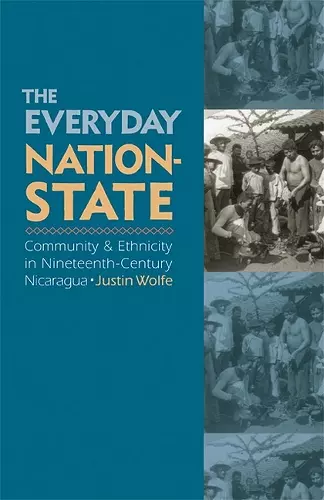The Everyday Nation-State
Community and Ethnicity in Nineteenth-Century Nicaragua
Format:Paperback
Publisher:University of Nebraska Press
Published:1st Jul '09
Currently unavailable, and unfortunately no date known when it will be back

A detailed study exploring the intersection of nation-state formation and everday life in nineteenth-century Nicaragua
After Nicaragua achieved independence from Spain in 1821, it suffered a series of conflicts culminating in the two-year National War. When that war ended in 1857, Nicaragua was in ruins. The Everyday Nation-State explores what followed: the intersection of nation-state formation and everyday life in nineteenth-century Nicaragua.After Nicaragua achieved independence from Spain in 1821, it suffered a series of conflicts culminating in the two-year National War. When that war ended in 1857, Nicaragua was in ruins. The Everyday Nation-State explores what followed: the intersection of nation-state formation and everyday life in nineteenth-century Nicaragua. Rather than focus on the “invented traditions” of anthems, marches, and memorials that convey and reproduce an established sense of national identity and belonging, this work analyzes how such feelings emerged in the struggles of local communities over political authority, identity, and legitimacy. Based on extensive research of court cases, land registries, census materials, correspondence, government publications, and newspapers, The Everyday Nation-State connects the local with the national, prizing the narratives of commoners, while placing them in the larger regional and historical context, and challenging the way we approach the study of the nation-state. Justin Wolfe’s exploration of quotidian social life and politics in nineteenth-century Nicaragua reveals how the diversities of economy, ethnicity, and geography engendered multiple experiences of nation. In turn, these experiences invigorated a new Nicaraguan citizenry as it fragmented local community power and autonomy in the face of a nascent modern state. This local perspective also provides a key to understanding the rise of twentieth-century figures such as revolutionary Augusto C. Sandino and dictator Anastasio Somoza.
ISBN: 9780803228023
Dimensions: unknown
Weight: 437g
288 pages